Title
Results
Supporting people to live self-directed lives in the community: Learning from 54 Irish projects
This paper outlines the key learning from 54 projects which have been supporting people with disabilities and mental health difficulties to move, usually from institutional settings, to live self-directed lives of their choosing in their local communities. This paper describes the implementation learning that has taken place; how this happens in practice; and the factors which lead to and support positive outcomes for the individuals. The paper draws on a significant body of data collected from these projects during on-site visits which included meetings with the project leads, key staff and the people being supported as well as family members, advocates and other allies.
The following characteristics have been identified as most strongly associated with good outcomes for the person and the organisation;
- Multi-level leadership - there should be ‘a champion’ at all levels of the organisation who supports and drives the move to a new way of supporting those using the service.
- Involving families and allies - needs to be done in a way that acknowledges their concerns, that considers how they want to be involved in supporting their family member and that considers the wishes of the person.
- Engaging and consulting with stakeholders - engagement should be future-focused on how different stakeholders are going to contribute to the new supports being developed.
- Staff skills and training - staff need to be trained/supported into these new ways of working.
- Readiness -the starting point should be that everyone is ready to move, with the emphasis on what supports needed to be put in place to ensure this happens safely and in a way that is designed by the person.
- It’s about more than housing - time should be built in for a process of really getting to know the person so that informed decisions can be made about accommodation options.
- Building strong and lasting relationships with the community - links with the community should be made in a very intentional and purposeful way for each person based on their abilities, contributions, wishes and needs.
- Start small and ‘model’ change - those involved act as ‘peer models’ for the process and the change involved. For those who will be moving, seeing their peer preparing and then successfully move, can give others encouragement that this is possible.
- Challenge of reconfiguration - in order to provide the supports for those who have moved, existing resources must be reconfigured so that the supports can move with the person.
- This takes time - to be done really well for each person, this process takes time.
- Focus on outcomes and monitor progress - progress can be greatly assisted by monitoring progress towards agreed outcomes.
Key Points
- The starting point should be that everyone is ready to move, when the required supports designed by the person are in place.
- Organisations should start small and ‘model’ change for others.
- Existing resources must be reconfigured to provide these new supports.
- Staff need to be supported into new ways of working.
- It’s about more than housing; time is required to really get to know the person so that informed decisions can be made about accommodation options.
